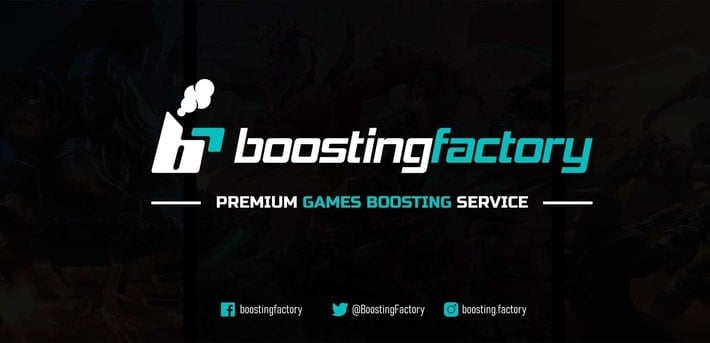
Today's digital world immerses students in an environment in which gaming and learning collide. While gaming provides entertainment, relaxation, and cognitive benefits for individuals involved, it also creates time management and priority challenges, which require disciplined planning strategies and self-awareness from each individual engaged with gaming activities. In this article, we explore student life within gaming environments while offering effective ways of maintaining a healthy balance between gaming activities and academic responsibilities. Also, see if web development can be a side hustle for students at startmotionmedia.com
Understanding Gaming's Appeal
Gaming has become an integral component of student life for various reasons. Video games provide an immersive virtual reality experience that allows players to escape reality, explore virtual worlds and embark on thrilling quests and adventures. Gaming also serves as a social activity by connecting online or joining team-based challenges or competitions - perfect entertainment for people of all ages!Set Priorities and Boundaries
Achieving balance in student life requires prioritizing academic responsibilities like attending classes, completing assignments, and studying for exams over gaming activities. Set clear time blocks aside exclusively for gaming without interfering with academic commitments or essential tasks; establish clear boundaries around gaming by restricting play sessions to certain times during the day or setting time limits on them - this way, students can remain in control of their gaming habits without them becoming more important than academic goals and essential tasks.Employ Time Management Techniques
Achieving a balance between gaming and learning can only be accomplished using effective time management techniques, like creating to-do lists, setting SMART goals, and using time-tracking apps that show where time is being spent throughout the day. Divide larger tasks into manageable chunks before allocating time slots specifically for study, gaming, or any other activity. Prioritize academic tasks before engaging in gaming activities if time allows; managing time effectively ensures students have enough time for both activities without compromising academic performance! By allocating their time effectively, they will ensure they have sufficient time for both without compromising academic performance!Integrating Gaming
Instead of considering gaming as a distraction from learning, students can turn gaming into an instrument for honing academic skills and knowledge. Educational games and gamified learning platforms exist that offer engaging ways of studying subjects ranging from math and science to history and language arts - providing supplementary study aids or educational gaming resources aligning with academic interests or goals and goals for various subjects supplementary learning resources or study aids for various subjects; there are even gaming-specific forums where members share knowledge and strategies with one another!Seeking Support
Students seeking a balance between gaming and learning may find assistance by turning to peers, friends, or family for support and accountability. Study groups or gaming buddies can provide much-needed encouragement, motivation, and accountability regarding academic pursuits or gaming hobbies. Group projects or study sessions with classmates offer another method of meeting academic responsibilities while cultivating camaraderie among classmates and building mutual support for learning goals and challenges. Furthermore, online communities that discuss gaming/academic topics provide another opportunity for like-minded individuals to connect and discuss similar goals/challenges among their peers or family. In case you need professional writing assistance, look for it at https://writepaperfor.me/Self-Reflection and Adaptation
Self-reflection can be a valuable tool in helping students evaluate their gaming habits, academic development, and overall well-being. Regularly reflect on your gaming and learning habits in terms of academic performance, physical health, and mental well-being, as well as any adjustments needed in order to find a balance between gaming and learning. Be open to changing approaches and habits according to self-reflection as needed - prioritizing academic responsibilities while still enjoying gaming as an outlet is all part of creating healthy routines that allow students to find balance in life!Create Realistic Goals and Expectations
Establishing realistic goals and expectations are vital for maintaining a healthy balance between gaming and learning. Avoid setting unrealistic or overly ambitious expectations that could cause frustration or burnout. Instead, set realistic and attainable academic and gaming goals that take into account your current commitments, resources, and capabilities. Break larger goals down into manageable steps you can work toward gradually. Honor achievements and milestones along the way, appreciating all of your hard work and dedication needed to maintain balance in student life. By setting realistic goals and expectations, students can avoid feeling overwhelmed while maintaining control and satisfaction both academically and in gaming endeavors.Acknowledging Flexibility and Adaptability
Flexibility and adaptability are crucial attributes for students navigating the complexities of balancing gaming with learning while acknowledging that finding that balance may require ongoing adjustments and adaptations over time. Be open to trying different strategies, techniques, and approaches until you find what works for you in terms of finding that equilibrium between gaming and learning; allow some spontaneity into your routine so you can easily adapt to academic deadlines, gaming events, or any other commitments which arise - this allows them to successfully navigate student life while creating harmony between academic pursuits and leisure pursuits like gaming.Conclusion
Finding balance in student life means approaching the intersection between gaming and learning with intentionality, self-discipline, and awareness. Students can achieve this balance by understanding both its appeals and risks while setting priorities and boundaries accordingly. Employing effective time management techniques; integrating gaming into learning processes; prioritizing physical and mental well-being as part of academic responsibilities while still enjoying its benefits - creating habits that foster balance and well-being that foster academic success as well as personal development simultaneously.Top 70
Secure your Overwatch seasonal rewards, today.
